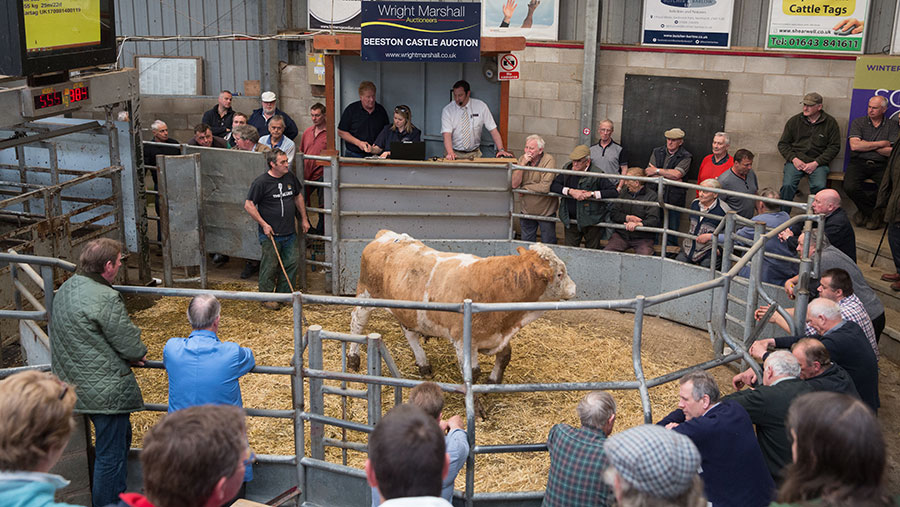‘Vet attestation’ rules for meat exports to be tightened
 © Tim Scrivener
© Tim Scrivener UK farmers will be barred from exporting non-assured livestock or products derived from them to the EU from next week, unless they have a vet-supplied declaration that their animals have been inspected in the past 12 months.
The new rules initially took effect last December, requiring an animal to have a vet attestation number (VAN) before it or its meat can be eligible for export.
But a four-month derogation was also permitted in England, Scotland and Wales, allowing farmers to self-declare that a vet had visited their farm in the past 12 months. That derogation ends on 12 April.
See also: Defra to slash budget for smuggled meat checks at Dover
Livestock Auctioneers’ Association secretary Chris Dodds said the response of farmers to the changes had so far been “quite good”.
Many in England had used the Defra Animal Health and Welfare Pathway and its funded health check to provide the required attestation, he said.
“There is a percentage of farmers who have decided that they won’t do anything about this new requirement until they have to, but the majority have just got on with it,” he said.
With many prime stock destined for EU countries, the absence of a VAN could reduce an animal’s appeal to buyers and diminish its value in the auction ring; a VAN is not needed for breeding stock or stores.
Also, the EU accepts membership of a farm assurance scheme, such as Red Tractor, Quality Meat Scotland or Farm Assured Welsh Livestock, as an alternative to a VAN, as it regards this as evidence that the premises of origin meet the requirement for regular health visits from a vet.
Neil Wilson, executive director of the Institute of Auctioneers and Appraisers in Scotland, said a VAN is valid for 12 months.
In Scotland, the vet should be able to register this number with ScotEID on their Export Eligibility Checker, he explained.
This allows auction marts to automatically check whether the livestock consigned is eligible for export without the need for the farmer to bring in additional paperwork.
Mr Dodds stressed that the requirement for a VAN is a EU directive, not one that has been introduced by the UK government or devolved administrations.
“Defra and the individual countries haven’t thrown this at farmers, it is EU-led and one of its rules for produce going into EU countries.”
